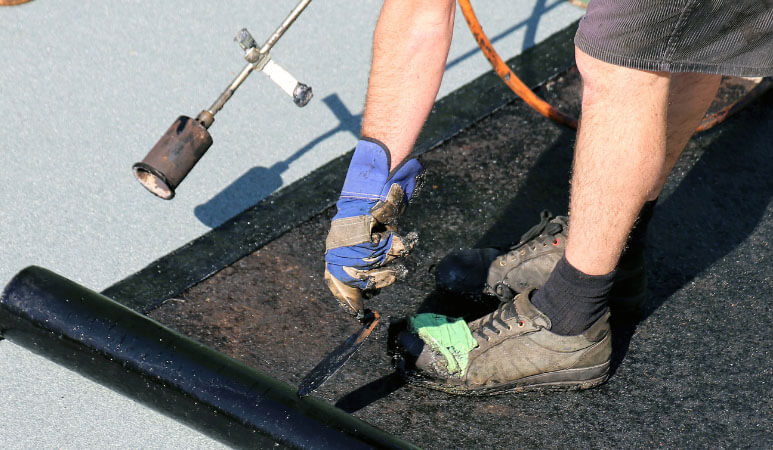Modified bitumen roofs are evolutionary roofing systems from built-up roofs. They are made of asphalt reinforced with one or more layers of fabric. The most common reinforcement materials are polyester, fiberglass, and nylon. These roofs are also surfaced with mineral granules or a smooth finish.
Modified bitumen is suitable for low-slope roofs and can be installed in several ways. They have become popular in the commercial roofing industry, and every roof installation contractor recommends them. Here are some pros and cons if you are considering a modified bitumen roofing installation.
Pros of Modified Bitumen Roofs
1. Greater Thickness
Modified bitumen materials have multiple plies or layers. This makes them thicker than most single-ply roofing materials like EPDM or PVC. The extra thickness gives the roof excellent resistance to punctures, tears, and other physical damage. Additionally, modified bitumen roof coating lasts long.
2. High Flexibility
Flexible roofing materials like modified bitumen can conform to the irregularities of a roof deck. This is important because it helps create a stronger bond between the roofing system and the roof deck.
The flexibility of modified bitumen also helps the roofing system withstand thermal expansion and contraction. They do not lose their shape when they expand or contract. This is the main reason Grace Roofing & Sheet Metal Enterprise prefers modified bitumen roofing installation.
3. Energy Efficient
A modified bitumen roof coating can be treated to feature solar reflectance and thermal emission properties. Modified bitumen roofs reflect up to 85% of the sun’s rays. This helps keep your building cooler during summer and lowers air conditioning costs.
4. Tear Resistant
The combination of asphalt, polyester, and fiberglass reinforcement fabrics makes modified bitumen roofs tear-resistant. They can withstand physical damage from foot traffic, wind, hailstorms, and other severe weather conditions.
Cons of Modified Bitumen Roofs
1. Expensive
Modified bitumen roofing installation requires special equipment and skills. The multiple plies or layers also add to the installation cost. However, the long lifespan of these roofs justifies their initial cost.
2. Absorbs Heat
During summer, black-colored modified bitumen roofs can absorb a lot of heat. This increases the temperature of your building, making it uncomfortably hot. Modified bitumen roof coating with a white or light-colored finish can reflect up to 85% of the sun’s rays. This helps keep your building cooler and lowers your air conditioning costs.
3. Vulnerable to Ponding
Modified bitumen roofs are not suitable for areas that experience a lot of rainfall or snowfall. The weight of the water can damage the roofing system. You can solve this problem by installing a drainage system on your roof. Ponding is water accumulation on a roof that doesn’t drain within 48 hours.
Conclusion
Modified bitumen roofs are an excellent choice for commercial buildings. They are energy efficient, durable, and tear-resistant. However, their installation requires special expertise and equipment. Contact your local roof installation contractor at Grace Roofing & Sheet Metal Enterprise if you are considering a modified bitumen installation. We will help you choose the right roofing system for your commercial building.

